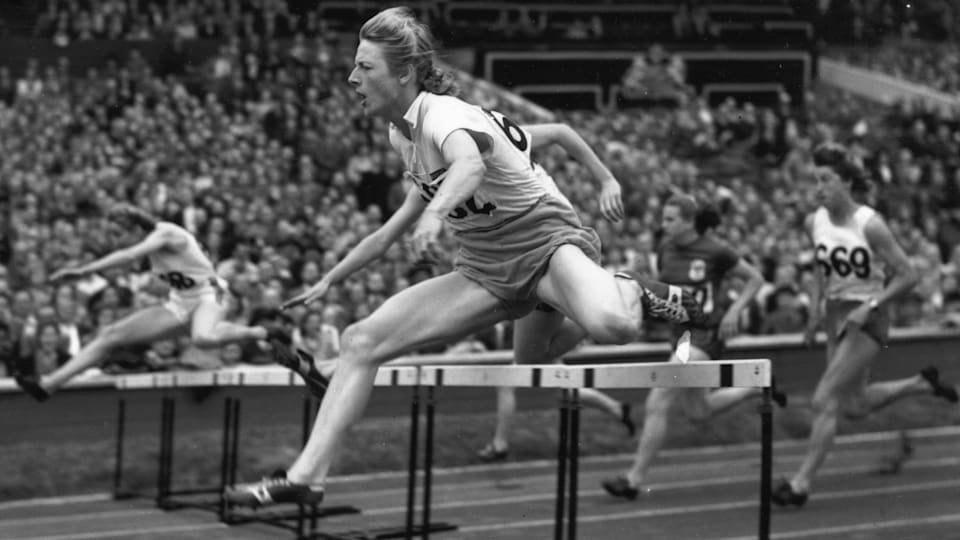The incredible dominance of Fanny Blankers-Koen
At almost every Olympic Games, various great athletes are heralded as the overall star, and good-natured arguments follow for years to come.

Normally, there's no consensus, no certainty about who really did deliver the most memorable performances. It is, as Olympian Sebastian Coe described it in 2012, “the ultimate pub question: who is the greatest Olympian ever?”
But in 1948, everyone who witnessed the London Games was agreed on the identity of the World's favourite athlete that year – it was a 30-year-old Dutch housewife Fanny Blankers-Koen who produced an astonishing display of brilliance.
In 1948, just three years after the end of the Second World War, the sporting world wanted a star to cherish. It got Fanny Blankers-Koen, a mother of two from Utrecht, who was, perhaps, unlike anyone the Olympics had seen before or since. Critics suggested she was too old to succeed, while others said she should stay at home with her children. When she arrived at the track, Blankers-Koen pointed at one of her most vociferous critics and said simply: “I'll show you”. And she did – spectacularly.
Blankers-Koen won four gold medals in the London Games and could have won even more had she not been restricted to entering three individual races as well as the sprint relay. She arrived in London as the World record holder in no fewer than six different events.
The events she selected were among the most fiercely-contested. The 100m dash, the 80m hurdles, the 200m and the 4x100m relay.
She won the 100m with ease, and, with an Olympic gold medal to her name, nearly withdrew from her other events to return home. Her husband, Jan Blankers, who was also her coach, persuaded her otherwise. The hurdles gold came next, followed by victory in the 200m, which she won by 0.7secs – a huge margin that has not been matched since. Blankers-Koen celebrated those victories with a shopping spree, and only arrived back at Wembley Stadium ten minutes before the start of the 4x100m relay. Her team-mates were already warming up, but it did not put her off. She ran the anchor leg, took the baton in fourth place and produced an astonishing piece of sprinting to move up to third, then second before taking the lead. Four events, four gold medals.
She returned home to an array of honours and the gift of a bicycle from the people of Amsterdam. But her achievements were more profound than just sporting victories. On the biggest sporting stage of them all, and at a time when the world desperately needed something to cheer, women's sport had come to the fore in the shape of an exceptionally talented athlete. She remains one of the great Olympians in history.
